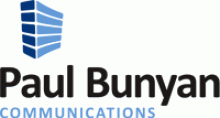Springfield, Massachusetts Introducing Free Downtown Wifi Plus New Dark Fiber Capacity
Starting this spring, the City of Springfield, Massachusetts will offer free municipal Wi-Fi and new dark fiber capacity to a 7-block area of the city’s downtown known as the “Springfield Innovation District.”
As Masslive.com reports, the new dark fiber will create a connection between the city’s Springfield Innovation Center and an existing network of dark fiber capacity in this part of downtown. The publicly owned fiber currently provides gigabit connectivity to municipal buildings but the city will lease out excess capacity. The new Wi-Fi and dark fiber services are part of a broader plan aimed at boosting economic development and innovation in Springfield, the state’s third largest city at 150,000 and the fourth largest city in all of New England.
The project is phase one of a broader plan to soon expand the network even further in order to reach an additional downtown area and all of the city’s public parks. Springfield’s Chief Information Officer Kevin Kennedy estimates the project’s phase 1 total cost between $50,000 and $100,000. While users interested in connecting to the dark fiber will contract with a private provider for Internet service, the city will be the service provider for the free downtown Wi-Fi.
Preparing for New Tourism, Increased Economic Development, Better Livability
Over the next two years, the city will welcome a new Union Station transportation center and an MGM Casino in the city’s downtown area. With the increased tourism, Kennedy told WAMC Radio that it would be “embarrassing” for Springfield not to have free downtown Wi-Fi.
Delcie Bean, the founder of a Springfield IT company and the creator a downtown-based tech training organization called Tech Foundry, believes the new network capacity is essential to attracting people to work, live, and play in downtown Springfield:


